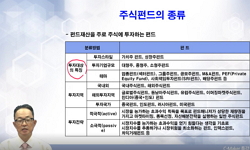디뮤추얼라이제이션이란 일반적으로 제한된 조직원만을 대상으로 하는 배타적 단체가 회원제 영리법인으로 체제를 개편하는 과정을 말한다. 한편 증권선물거래소의 디뮤추얼라이제이션이...
http://chineseinput.net/에서 pinyin(병음)방식으로 중국어를 변환할 수 있습니다.
변환된 중국어를 복사하여 사용하시면 됩니다.
- 中文 을 입력하시려면 zhongwen을 입력하시고 space를누르시면됩니다.
- 北京 을 입력하시려면 beijing을 입력하시고 space를 누르시면 됩니다.
https://www.riss.kr/link?id=A99724325
- 저자
- 발행기관
- 학술지명
- 권호사항
-
발행연도
2012
-
작성언어
English
-
주제어
Stock exchange ; Self-regulatory organization ; Public institution ; Demutualization ; Going public ; Self-listing ; Conflicts of interest ; Shareholding restrictions ; M& ; A threats ; 증권선물거래소 ; 자율규제기관 ; 공공기관 ; 디뮤추얼라이제이션 ; 상장 ; 자기상장 ; 이해 상충 ; 소유권제한 ; 인수·합병 위협
-
등재정보
KCI등재
-
자료형태
학술저널
-
수록면
299-338(40쪽)
- 제공처
-
0
상세조회 -
0
다운로드
부가정보
국문 초록 (Abstract)
오늘날 증권선물거래소의 디뮤추얼라이제이션은 더이상 생소하지 않다. 치열해지는 경쟁 속에서 전세계의 이미 많은 증권선물거래소들이 디뮤추얼라이제이션 단행을 통해 규모의 경제를 추구하고 있다. 세계 대형 거래소간 활발히 일어나고 있는 인수·합병의 추세에 대응하고자 2011년 2월말 한국거래소는 기업공개계획을 발표하였다. 한국거래소는 주식회사의 형태를 취하고 있으나 그 기업공개는 아직 이루어지 않았다. 따라서 한국거래소가 상장된 거래소가 된다는 것은, 이는 곧 마침내 한국거래소의 디뮤추얼라이제이션이 완성된다는 것을 의미한다. 한국거래소는 지난 2003년부터 기업공개를 추진해 왔지만, 2009년 1월 29일부터 한국거래소가 공공기관으로 지정됨에 따라 현 상황은 기존과 다소 다르다.
본고는 한국거래소의 디뮤추얼라이제이션 및 이와 관련된 법적인 문제를 다루는 것을 주요 목적으로 한다. 한국거래소 관련 사안을 본격적으로 다루기에 앞서, 본고는 먼저 증권선물거래소의 디뮤추얼라이제션 전반적인 개요 및 그 의미에 대해 검토한다.
디뮤추얼라이제이션이란 일반적으로 제한된 조직원만을 대상으로 하는 배타적 단체가 회원제 영리법인으로 체제를 개편하는 과정을 말한다. 한편 증권선물거래소의 디뮤추얼라이제이션이란 거래소가 조직원 소유의 비영리단체에서 주주 소유의 영리목적 주식회사로 전환되는 과정을 의미한다. 증권선물거래소의 디뮤추얼라이제이션은 증권거래소가 기존의 비영리 배타적 회원제 조직에서 주식회사제의 영리법인으로 조직개편되는 단계의 시점에서부터 증권거래소가 공시상장되는 단계의 기점까지, 여러 단계를 거쳐 진행된다.
오늘날 증권선물거래소의 디뮤추얼라이제이션은 더이상 생소하지 않다. 치열해지는 경쟁 속에서 전세계의 이미 많은 증권선물거래소들이 디뮤추얼라이제이션 단행을 통해 규모의 경제를 추구하고 있다. 세계 대형 거래소간 활발히 일어나고 있는 인수·합병의 추세에 대응하고자 2011년 2월말 한국거래소는 기업공개계획을 발표하였다. 한국거래소는 주식회사의 형태를 취하고 있으나 그 기업공개는 아직 이루어지 않았다. 따라서 한국거래소가 상장된 거래소가 된다는 것은, 이는 곧 마침내 한국거래소의 디뮤추얼라이제이션이 완성된다는 것을 의미한다. 한국거래소는 지난 2003년부터 기업공개를 추진해 왔지만, 2009년 1월 29일부터 한국거래소가 공공기관으로 지정됨에 따라 현 상황은 기존과 다소 다르다.
본고는 한국거래소의 디뮤추얼라이제이션 및 이와 관련된 법적인 문제를 다루는 것을 주요 목적으로 한다. 한국거래소 관련 사안을 본격적으로 다루기에 앞서, 본고는 먼저 증권선물거래소의 디뮤추얼라이제션 전반적인 개요 및 그 의미에 대해 검토한다.
다국어 초록 (Multilingual Abstract)
Nowadays demutualization of stock exchanges is no longer unusual. Many stock exchanges around the world have already demutualized in order to achieve economies of scale as a response to increased competition. In response to such phenomenon, the Korea Exchange (KRX) announced its self-listing plan in the end of February 2011, purporting to make it easier to participate in the ongoing consolidation of global stock exchanges. KRX takes form of a stock company, but has not gone public yet. Thus being a listed exchange means the completion of demutualization to KRX. The exchange began to push for its self-listing from 2003, but the current situation around KRX is somewhat different from before, because since January 29, 2009 the exchange has been designated a public institution.
The primary purpose of this paper is to study demutualization of KRX and related legal issues. Before examining the case of KRX, the paper first provides overview of exchange demutualization and discusses its implications.
Demutualization generally refers to the process of reorganizing a mutualized, or member-owned, entity into a for-profit corporation with shareholders, and demutualization of stock exchanges means a process of converting exchanges from non-profit, memb...
Demutualization generally refers to the process of reorganizing a mutualized, or member-owned, entity into a for-profit corporation with shareholders, and demutualization of stock exchanges means a process of converting exchanges from non-profit, member-owned organizations to for-profit, investor-owned stock corporations. The process of demutualization proceeds in several steps. Exchange demutualization commences when the membership of a traditional non-profit organization that operates a stock exchange reorganizes the exchange as a forprofit institution, and concludes when the exchange goes public and thus become listed.
Nowadays demutualization of stock exchanges is no longer unusual. Many stock exchanges around the world have already demutualized in order to achieve economies of scale as a response to increased competition. In response to such phenomenon, the Korea Exchange (KRX) announced its self-listing plan in the end of February 2011, purporting to make it easier to participate in the ongoing consolidation of global stock exchanges. KRX takes form of a stock company, but has not gone public yet. Thus being a listed exchange means the completion of demutualization to KRX. The exchange began to push for its self-listing from 2003, but the current situation around KRX is somewhat different from before, because since January 29, 2009 the exchange has been designated a public institution.
The primary purpose of this paper is to study demutualization of KRX and related legal issues. Before examining the case of KRX, the paper first provides overview of exchange demutualization and discusses its implications.
목차 (Table of Contents)
- ABSTRACT
- Ⅰ. Introduction
- Ⅱ. Demutualization of Stock Exchanges
- Ⅲ. Demutualization of the Korea Exchange
- Ⅳ. Conclusion
- ABSTRACT
- Ⅰ. Introduction
- Ⅱ. Demutualization of Stock Exchanges
- Ⅲ. Demutualization of the Korea Exchange
- Ⅳ. Conclusion
- Bibliography
- 초록
동일학술지(권/호) 다른 논문
-
- 한국증권법학회
- 이철송(Lee, Chul Song)
- 2012
- KCI등재
-
- 한국증권법학회
- 김연미(Kim, Yon Mi)
- 2012
- KCI등재
-
- 한국증권법학회
- 정순섭(Jung, Sun Seop)
- 2012
- KCI등재
-
- 한국증권법학회
- 류혁선(Ryu, Hyeuk Sun)
- 2012
- KCI등재





 DBpia
DBpia




